Josephine Ampofo, Food and Science Technology, Postdoctoral Scholar
Empowering the silent voices of African Women Scholars in Academia
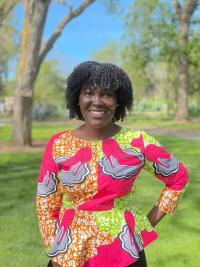
Faculty Mentor: Moradewun Adejunmobi
Project Summary: Obtaining a faculty position in an international environment takes lots of determination and many hidden challenges especially for African women scholars who migrated to foreign countries like United States due to issues like lack of honest mentorship, limited knowledge of interviewing and negotiation skills especially in a different cultural academic market, as well as the hidden fear of possibly being sidelined due to your roots. Thus, my goal for this project was to: (1) bring together UC Davis’s African women scholars, both graduate and postdoctoral trainees, (2) engage them with faculty members and themselves to network and share experiences; and (3) and provide guidance on resources and expectations needed to help ensure a successful faculty job interview and transition.
To achieve this, I organized a workshop dubbed, Navigating the American Job Market, with Prof. Moradewun Adejunmobi as the guest speaker. Overall, the workshop was very successful, and it was exciting to see how participants were inspired and engaged in very thoughtful discussions, especially in areas such as: (1) need of serving the community via DEI volunteering and available outreach programs; (2) knowing the type of institution you’re applying to, details of job description and the need to always submit highly-prepared requested documents; and (3) finding a mentor who does not only understand the cultural gaps, but also is honestly interested in your professional development and willing to give you opportunities needed to increase your potential and competitiveness on the academic market. Another interesting part of our discussion was how participants were astonished of the many opportunities that UC Davis provides for their professional development but were not being exploited from their end.
I am very grateful to all members of the African women community who participated in the workshop, as well as Prof. Moradewun Adejunmobi and Dr. Teresa Dillinger who helped organize resources for the workshop’s success, in my absence due to an unforeseen family issue. It is my dream that future African women scholars of UC Davis will take the rod and continue the race from here, to help develop more exciting initiatives that will increase the confidence and potential of our community on campus.
Sudikshya Bhandari, Geography
International Teaching Assistants: Navigating Academic, Psychosocial, and Employment Aspects of University
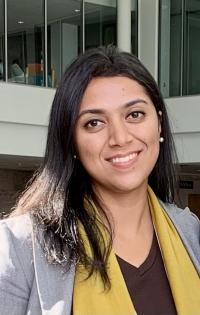
Project Summary:
International students have different academic and cultural experiences in their homeland compared to the US university environment. Like in any other institution, international students at UC Davis face cultural shocks in different forms in their personal and professional lives. It is challenging for international students to navigate the role of a Teaching Assistant while being a graduate student, especially at the very beginning, because they are unfamiliar with the US education system. Some of the major issues and factors that make it challenging for international students to navigate their role as a TA are: i) the need to communicate and grade papers in English, which is their second language, ii) the academic system of teaching and learning is different from their home country, especially the assignments, subject matter, lecture styles, readings, and iii) the culture of interaction with students and professors.
To address the issues of international students, my PFTF project focuses on four main areas: a) Academic, b) Psycho-social, c) Employment (categories suggested by the APAGS-CARED committee and International Student Club at Monmouth University), and d) Pedagogy. This project aims to create a space for international students to discuss the issues they face with their peers in informal sessions and get advice from experts to navigate their situation in formal sessions. The informal session aims to provide a community for international students where the registered participants will share their issues, learn from each other and get suggestions from their peers. In the formal session, there will be a panel of speakers mentoring, advising, and guiding international graduate students to address their issues in each area. This project provides an opportunity to acknowledge and address the challenges specific to international graduate students at UC Davis by providing an equitable platform to enhance their role as TAs through the discussion of challenges related to the language and cultural differences in the teaching and learning process in the US. For this project, I am also collaborating with Global Education for All Fellows Program hosted by Global Affairs at UC Davis.
Daniel Castaneda, History
Networks of Knowledge: Scholarly Communication and K-12 Education in California
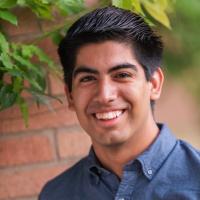
Project Mentor: Dr. Beth Slutsky
Networks of Knowledge: Scholarly Communication and K-12 Education in California
My project connected graduate students to a broader network of K-12 educators, university faculty, and subject matter experts across the state. By introducing students to the California History-Social Science Project (CHSSP) and the California Subject Matter Project (CSMP), I shared knowledge about opportunities for scholarly communication through primary and secondary education. One challenge in pursuing a higher degree is that graduate students can find it challenging to communicate scholarly work outside of the university and get opportunities for public service during their graduate training. While many students learn how to communicate their research through discipline-specific venues, it can be difficult to find opportunities to share subject matter expertise with broader public audiences. Moreover, graduate students rarely get this kind of training, much less a chance to practice it. My project was a series of three, standalone workshops that illustrated approaches that graduate students can follow from K-12 education, ranging from presenting complex information, teaching and pedagogy, and finding internship/professional development opportunities. These presentations reached different audiences, demonstrating the wide range of opportunities for graduate students in education, including outside of academia.
In my first workshop, I provided an overview of the landscape of K-12 education and offered students resources from K-12 to implement in their roles as Teaching Assistants and Tutors. In the second workshop, three PhDs came to share their experiences working in the CHSSP, California Science Project (CSP), and the California Writing Project (CWP), respectively. This session provided a panel discussion for participants to hear about how current professionals use their graduate training and offered insights into how to connect with different subject matter projects. The final session was a presentation to credential students in the School of Education. English Language Arts (ELA) and History-Social Science (HSS) student teachers learned about opportunities for continued professional development through the CSMP and gained insights into ongoing developments in Ethnic Studies education and cross-disciplinary approaches to topics like environmental justice and civics education.
Maggie Creamer, Animal Behavior
From Pantry to Plate: Creating Awareness of Graduate Student Resources for Mitigating Food Insecurity
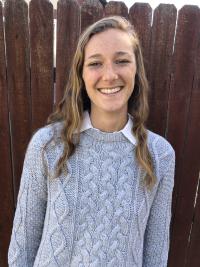
Project summary: Accessibility to healthy and affordable food is a basic human right. While expected to perform at a high level in academia, many graduate students are simultaneously struggling with the associated effects of food insecurity, such as hunger and the physical and mental stress of not being able to access healthy food. Despite heavy advertisement from Aggie Compass programs committed to solving the food insecurity crisis among students at UC Davis, many graduate students are still unaware of these programs including students experiencing the highest levels of food insecurity. I partnered with both the ASUCD pantry and GSA pantry, free food resources for graduate students on campus, as well as the local Davis Food Co-op to lead a series of three free cooking classes for graduate students. I coordinated a comprehensive ingredient list that was picked up by graduate students at both the ASUCD Pantry and the GSA Pantry. Students picked up ingredients for, and learned how to cook, tacos, chili, and samosas across the three classes. Many participants had not used the pantry prior to the class and learned where they were, what they have to offer, and when they are open. All students said they would continue using the pantries in the future and enjoyed the new, easy, and fun recipes learned in the classes. Students enjoyed the laid-back atmosphere of the cooking class and made new friends. The Co-op also took students on a tour of how to find budget items in their grocery store and raffled off a $50 gift card at each class. This project addressed the issue of food insecurity among graduate students 1) by increasing awareness and exposure to the pantries and budget items, 2) by providing a fun and creative outlet to reduce stress and 3) by reducing the stigma of food insecurity and providing a safe space to discuss and share budgeting tips and tricks.
Erika Estrada, Food Science and Technology
The Mentoring, Advising, and Networking Opportunities Pilot Program
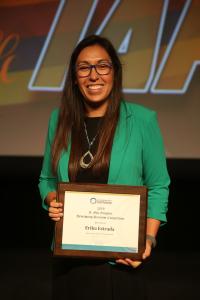
Project summary: Stemming from social and political events in the last few years, public and private academic institutions are taking steps to build an environment that celebrates and values diversity, equity, and inclusion (DEI). However, graduate programs across the U.S. still lack significant representation of diverse racially ethnic students. Black and Hispanic students remain underrepresented in graduate schools, especially in science, technology, engineering, and mathematics. African American and Hispanic/Latino students constitute about 15% of the total graduate students enrolled in doctoral programs at the University of California during the Fall of 2021. Undergraduate students from these racial-ethnic groups do not lack the qualifications or ambition to pursue higher education. However, many have had limited exposure to graduate school, and little help navigating the path to graduate school because they are the first in their family to attend college; thus, they may not associate graduate school with an opportunity for them.
The MANO (Mentoring, Advising, and Networking Opportunities) program worked with California community colleges, the largest and one of the most diverse (over 50% of students are Hispanic/Latino or African American) systems of higher education in the country, to tackle some of the obstacles mentioned above. MANO encompassed a series of panels (a total of 4) where current graduate students and postdoctoral scholars had the opportunity to expose underrepresented students to graduate school, empower them to pursue higher education, and dismantle some misinformation community college students may have regarding graduate education. Additionally, we created the MANO Mentor Directory which is a curated collection of biographies of accomplished current and former graduate students who are committed to promoting diversity in graduate education and are eager to serve as mentors, guides, and resources for community college students. These resources aimed to create a space for underrepresented college students to develop relationships with potential mentors who are attending or previously attended graduate school and can help them navigate their educational journey. Simultaneously, this project facilitated opportunities for current UC Davis graduate students and postdoctoral scholars to demonstrate their commitment to DEI and ultimately, help to close the academic equity gap. To learn more about The MANO program please visit: https://themanoprogram.wixsite.com/website.
Fernanda Furlan Goncalves Dias, Food Science and Technology
Erasing equity gaps: Fostering academic careers in Hispanic Serving Institutions (HSIs)
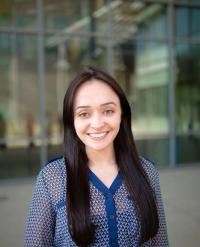
Project summary: The project goal was to start a conversation on how being a Hispanic Serving Institution (HSI) could benefit students and how representation of Latinx in the Faculty body is important to inspire the students. For that, I collaborated with Dr. Kluchin from California State University, Sacramento and we organized an online event, where Professors and staff from both CSUN and UC Davis talked about their struggles and background, and had fruitful conversations with graduate students and postdocs. A total of 34 students and postdocs registered for the event from 8 different departments and 25 were present during the online event, held on April 11th, from 9 to 11 am. Six speakers from a variety of backgrounds and with a common interest in the subject of this project were invited to this event. Each speaker had 15 min of presentation time plus 5 for Q&A. A 20 min discussion panel at the end o the event was also performed. The event raised attention to an existing and challenging Pipeline problem, there was demonstrated by the number of undergrad and graduate students vs the number of Faculty from Latix backgrounds. These numbers get even worse when we focus on leadership positions occupied by those Faculties. Important questions were raised during the event and during the discussion panel, such as “What questions do we need to be asking ourselves as we engage in our understanding of What it means to be a Hispanic Serving Institution?” and “What does the lack of Latinx and Chicanx faculty on our campus mean for our students and our communities?”. The online event opened new venues for further discussion on the importance of Latinx representation in leadership positions. The Panel Discussion with our invited speakers was fruitful and brought a great discussion on the role of the university in actually serving the Hispanic and Latinx communities. Positive feedback was given by the attendee on the knowledge shared and the question raised.
Leora Goldbloom-Helzner, Biomedical Engineering
What They Don’t Teach You in Grad School: Resources and Support for Starting an Academic Laboratory
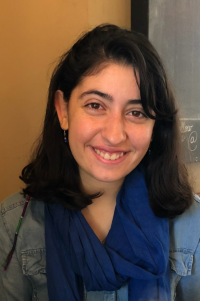
Project summary:
By the end of higher education and postdoc positions, PhDs are well- equipped with the technical skills to carry out the research projects completed in a lab. However, for those who wish to become an academic professor, there is little to no training, especially for STEM fields, on how to manage funding for a new lab, mentor several lab members simultaneously, and juggle the responsibilities of being part of a university’s faculty. In a three-part series consisting of a panel-based meeting and two workshops, my project addressed the unmet need of training graduate students and postdocs who wish to improve their skills for a future career as an academic professor.
The first meeting was a panel-based discussion that brought together faculty (junior, mid-level, and tenured) from different graduate groups to discuss tips and advice they wish they would have learned before starting in their faculty positions. The second workshop focused on how one should approach funding and budgeting for their lab. This consisted of an overview of budget DO’s and DON’Ts, financial management strategies, and funding sources (both internally and externally) available to faculty – especially early-stage investigators – followed by exercises to apply this material. The third workshop discussed different leadership styles, time management strategies and conflict resolution practices that have worked well in an academic setting. The participants then got a chance to practice handling specific conflicts that could arise in their role as a professor. With these programs and guidance to support future faculty on campus, we can prepare a more competitive generation of researchers entering the academic job market.
Noelymar Gonzalez-Maldonado, Soils and Biogeochemistry
Making your research relevant: Effective tools for engaging with diverse communities in Ag and Environmental Sciences
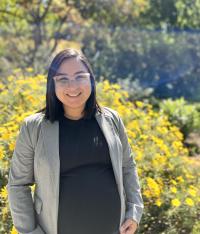
Project Mentor: Mallika Nocco and Sam Sandoval-Solis
Project summary: Communicating science is one of the most valuable services that scientists do. However, graduate students and postdoctoral scholars lack training in effective non-academic science communication. This often leads to a disconnection between academia and stakeholders, resulting in missed opportunities for engagement, collaborations, and potential ground-breaking advancements. Many diverse stakeholders in California serve in the agriculture sector; therefore, there is a necessity for building bridges with stakeholders through effective outreach activities. The goal of this hybrid participatory seminar was to discuss tools and strategies for effective and inclusive outreach focused on agriculture and environmental sciences fields. The seminar consisted of two sessions: 1) “How to engage your research with diverse communities” and 2) “How to give better extension talks” by Cooperative Extension Specialists Dr. Sam Sandoval-Solis and Dr. Mallika Arudi Nocco, respectively.
For the first session, Dr. Sandoval-Solis discussed current challenges in California water using maps for easy data visualization and discussed steps for program co-design for better research engagement with communities. The program co-design strategies included three steps: 1) defining the objective, 2) identifying the target audience, and 3) deciding for an appropriate activity. Dr. Sandoval-Solis discussed examples of programs and activities he’s worked with to involve historically marginalized communities in his research like the Water Wizards after school program that had hands on water science learning activities with kids and the Water Education for Latino Leaders which involved the community in advocating for better water policy in California with group discussions and spatial participatory approaches. At the end of the session participants got to brainstorm an activity in a think-pair-share activity using the program co-design strategies that Dr. Sandoval-Solis discussed.
For the second session, Dr. Nocco expanded on strategies involving outreach talk content, delivery and asserting expertise and authenticity. Dr. Nocco expanded on the structure of the content including the introduction, body, and conclusion and demonstrated the power of simplicity in data visualization and content organization. Recommendations involved content delivery included finding ways to show simplicity in complex information by breaking down most important points with few words, showing relevant imagery, providing equations (if needed) and the opportunity for the audience to practice an example, showing contrasting examples and outcomes, share helpful resources, among others. The third part of Dr. Nocco’s session discussed strategies for better expert content delivery following the 4 Ps: Poise, Projection, Power, and Practice. These 4 Ps are essential for creating a good connection with the audience. The planned activity for this session included students applying the concepts discussed from the 4 Ps to a short extension talk they would like to give.
The final part of this interactive seminar included a short Ask Me Anything (AMA) session with the speakers on “managing and preparing for unexpected/difficult situations while doing outreach”. At the end of the seminar, many attendants expressed good feedback and their strong interest in having it as a reoccurring event. We want to provide special thanks to the speakers, Dr. Sam Sandoval-Solis and Dr. Mallika Arudi Nocco, who also served as mentors for the event and the Graduate Student Professional Development Fund Award for sponsoring our refreshments.
Jasmin Green, Ecology
Weaving a Mentorship Web: Demystifying the process of building a robust mentorship network
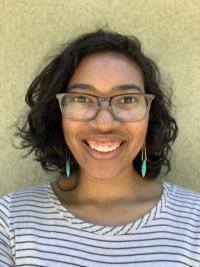
Weaving a Mentorship Web: Demystifying The Process Of Finding Effective Mentorship
Effective mentorship is a key part of student success and retention. As the academy recruits increasingly diverse cohorts, providing mentorship that can meet the multifaceted needs of the graduate student body becomes a greater challenge. Rather than relying on just a few people (e.g. a major advisor), graduate students can create a "mentorship web" that offers a holistic network of support. In this way, mentorship webs are a tool that gives students the agency to find the support they need to succeed in all aspects of graduate student life. My project seeks to demystify the process of building a mentorship web by hosting an interactive workshop focusing on three major steps: 1) Determining your mentorship needs, 2) Identifying potential mentors, and 3) Initiating and sustaining relationships with mentors. In addition, I will create a standalone workbook that can be distributed through resource centers and orientation programs to serve as a jumping-off point for students interested in building their own mentorship webs.
Eli Moore, Applied Math
Financial Education: Retirement Planning and Budgeting for Grads, by a Grad
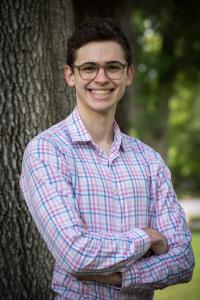
Project Mentor: Dr. Jeffrey Anderson
Project summary: Many grads delay financial education, often while thinking “I’ll get around to that when I am in my long-term career and financially secure”. This can be a recipe for self-sabotage; the habits of budgeting and retirement planning take time to learn about and discipline to execute, though they are simpler than most tend to assume! If we ignore these habits while in grad school, we will need to cultivate them in our future careers, on top of our inevitably growing list of responsibilities. Not to mention, the funds we save in our youth can contribute to a large portion of our total retirement savings thanks to the power of compound interest. In my workshop, I covered the practical knowledge necessary to help grads gain confidence in their finances. This included an overview of the stock market, the retirement accounts we have access to while in graduate school (and later on in industry or academia), and budgeting resources. We discussed a range of topics in a manner accessible to a variety of backgrounds, from “what is a stock? where can I open my retirement account?” to tax optimization and diversification strategies. Feedback for the workshop was overwhelmingly positive, with 100% of participants stating that the content was useful to them. Furthermore, 100% of participants were either already saving for retirement, or plan to as a consequence of attending the workshop. I also created a blog with a scholarly/evidence-based post discussing the potential consequences of (not) investing for retirement during graduate school.
Link here: financeforgrads.blogspot.com
Abby Niesen, Biomedical Engineering
Self-Advocacy to Empower Women in STEM
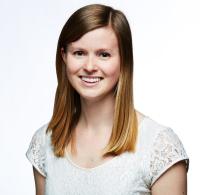
Project summary: According to the National Science Foundation, women make up 52% of the college- educated workforce but only 29% of the workforce in science, technology, engineering, and mathematics (STEM) fields. This disparity is known as “the leaky pipeline” in which women are more likely to drop out of STEM than their male counterparts. To succeed in their post-graduate careers, women in STEM at UC Davis must be equipped with skills which empower them to advocate for their needs (termed self-advocacy). Self-advocacy is a life skill necessary for personal development and long-term career satisfaction. Accordingly, my project was a two-part workshop series aimed to empower women in STEM with self-advocacy strategies.
The 1st event, “Let’s Chat: Developing Connections for Professional Advancement” had the following learning objectives, for attendees to: (1) initiate informational interviews with professionals, (2) understand how to prepare for the informational interview, including what questions to ask to develop leverage, and (3) apply effective organization strategies for maintaining notes and new connections. Three activities were incorporated and were highly rated by the attendees. The workshop slides and handout with associated resources are linked.
The 2nd event, “Perspectives on Self-Advocacy from Leaders at UC Davis” was an informal panel event with four speakers from different backgrounds: Dr. Karen McDonald, Dr. Millie Copara, Dr. J Faye Dixon, and Dr. Gina Dokko. Some key takeaways were to pick your battles, seek out allies, ask for help, and remind yourself of previous achievements to kick imposter fears. Additional resources shared include the book recommendation “Ask for it”, training in Conflict Competence offered by GradPathways, and Edge for Scholars. My hope is that these events helped in empowering young women at UC Davis to become leaders in STEM thereby increasing representation in the field.
Jill Oberski, Entomology
Mental and Chronic Illness in Academic Careers: An Interview Series
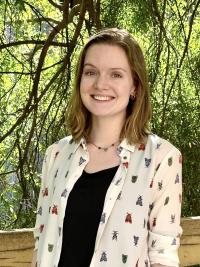
Project summary: Pursuing an academic career requires tremendous focus and energy, but early-career academics are also multidimensional human beings. Invisible disabilities such as mental and chronic illnesses are extremely common—38% of UC graduate students met criteria for clinical depression in 2021—but disability resources rarely intersect with professional development resources. For example, how can an aspiring academic conform to the intense expectations of in-person faculty interviews while managing an unpredictable health condition? Faced with societal stigma and an academic job market that is already intensely competitive is it risky to include disability status in a diversity statement?
To answer some of these questions and evaluate the academic job market with a lens of mental and chronic illness, I conducted a set of three Zoom interviews with a variety of people. Episode 1 is an informative and affirming group conversation with three tenured faculty who discuss their mental health struggles and how their journey to tenure was impacted. The general consensus that emerged was that disclosure requires caution and should be avoided in the pre-tenure years if at all possible. For better and for worse, a new professor's colleagues are often completely unaware of what they are going through outside of work. Episode 2 is a presentation about disability resources at UC Davis that compares graduate student care with employee or faculty care. We cover the process of requesting accommodations and medical leaves and explain how different disability offices across campus interact with one another. Lastly, Episode 3 is a group discussion among two graduate students and one recent alum who have chronic illnesses that are both mental and physical. We share our experiences, consider how stigma is different for visible vs. invisible disabilities, and offer advice for other grad students and postdocs on how to build a health support community in both their personal and professional lives.
These interviews are all available on the YouTube channel for the UC Davis GradPathways Institute for Professional Development (@TheGradPathwaysInstitute) in order to reach and support as many early-career academics as possible. In sum, this project will empower countless graduate students and postdocs—myself included—to make informed choices about if, when, and how to disclose their invisible disabilities
Travis Parker, Plant Sciences
A video-editing workshop series to promote effective research communication and break down barriers in education
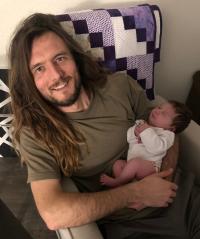
Project summary: As a presentation and educational tool, video allows for communication with a much broader global audience than traditional educational formats. The widespread availability of online video greatly reduces barriers to education and outreach, and messages can be communicated to any target audience in any language and across a variety of educational styles. Further, public videos are an important form of outreach, allowing students and postdocs to strengthen their grant proposals and present their research to the public without bias from traditional gatekeepers, such as major media outlets.
In a two-part video editing series, with each installment lasting 90 minutes, we covered how to capture, compile, and edit various forms of media to create effective informational videos. In the first computer-lab style workshop we had an attendance of approximately 28, and covered how to capture video, plan content and timing, and perform editing in DaVinci Resolve 18. A follow-up survey was distributed after the first installment, to gauge the group’s thoughts on areas to cover in more detail and to determine the overall educational effectiveness of the workshop. After the first workshop, attendees were encouraged to try out their new skills using their own media on topics relevant to them. In the second workshop, attendees learned more advanced editing skills, and had the opportunity to ask for feedback and advice on their own video editing projects, after having a chance to work on their videos independently.
Feedback on the educational value of the workshop has been quite positive overall. An example of a video posted by an attendee during the second session can be found at: https://www.youtube.com/watch?v=OU3MhTvwkjM
Sydney Wood, Psychology
From Ethics to Responsibility and Justice: Considerations for Data Science in Practice
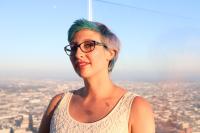
Project Mentor: Pamela Reynolds
Data science is a burgeoning field with seemingly endless uses and possibilities. Data science is relevant for nearly every discipline. However, the cultural and regulatory norms have not caught up with the rapid development of data science methods, which has led to negative impact on the environment and vulnerable/marginalized populations. In collaboration with DataLab, the Feminist Research Institute and GradPathways, we built a curriculum to promote ethics, responsibility and equity in data science methods. We presented a live workshop: Data Science in Practice: An Overview of Professional Standards in Data Science as part of UC Loves Data Week in Feb 2023. In this workshop, we introduced the topics of interest: 1) the power of data science, 2) responsible data science practices, 3) the dangers of data science in practice 4) promoting equity and justice through data science. We also developed legacy materials for future workshops on the topic with a website that acts as a reader with case studies and resources for workshop presenters. https://ucdavisdatalab.github.io/responsible-data-science/
Elaine Young, Earth and Planetary Sciences
Personal Website Development Mini Course: How to design and build an effective personal/professional academic website that will grow with your career
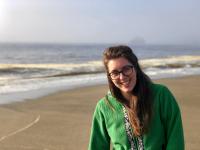
Project summary: A well-executed personal professional website is a highly effective tool for documenting current and past research projects, future research interests, opportunities for collaboration, recruitment of students and postdocs, as well as information about your research groups facilities and students’ activities. Personal websites are also a great place to post resources and products that otherwise lack a formal publication (e.g. tutorials, packing lists, safety protocols), and they provide a centralized location where all activities including outreach, service, contributions to diversity, equity, and inclusion can be found. Without a website, it is difficult for others in the community to learn about current and past activities, especially because publications and conference abstracts usually lag behind active research efforts. While the website will not make or break being hired to a faculty position, it has undeniable benefits to other aspects of career success. For many graduate students and post-doctoral scholars, making a website is difficult to prioritize and the learning curve for making an effective site can feel too steep. This workshop covered the fundamentals of creating a personal academic website. At the end of this workshop participants left with a high-quality website and an understanding of and ideas to maintain it as they grow throughout their career. The workshop began with a short presentation followed by time dedicated to building participants’ websites. Participants used the time during the workshop to ask questions and get feedback on their pages. The activity focused on a free platform that has a good balance of user-friendly tools with impressive design options. One group of participants collaborated to learn how to build sites using GitHub following the format of the provided activity.
